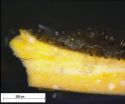(Press-News.org) The newly approved drug dabigatran is an alternative to warfarin to help prevent dangerous blood clots in patients with atrial fibrillation, according to updated guidelines from the American College of Cardiology, American Heart Association and the Heart Rhythm Society.
The "Focused Update" — published in Circulation: Journal of the American Heart Association, Journal of the American College of Cardiology and HeartRhythm Journal — specifically updates the section on emerging antithrombotic agents in atrial fibrillation treatment guidelines released by the three organizations on Dec. 20, 2010.
Atrial fibrillation is an irregular heart rhythm that occurs when the heart's two upper chambers beat erratically, causing the chambers to pump blood rapidly, unevenly and inefficiently. Blood can pool and clot in the chambers, increasing the risk of stroke or heart attack. More than two million Americans live with the condition.
According to this most recent update, dabigatran is useful as an alternative to warfarin to prevent stroke and blood clots in patients with either paroxysmal (recurrent episodes that stop after seven days) or permanent (an on-going episode) atrial fibrillation, and with risk factors for stroke or blood clotting who do not have a prosthetic heart valve, significant heart valve disease, severe renal failure or advanced liver disease.
Warfarin, an anti-clotting drug used since the 1950s, requires patients to have regular testing to monitor its effectiveness and dosage adjustment.
In December 2010 the atrial fibrillation guidelines were updated and recommended that a combination of aspirin and the oral antiplatelet drug clopidogrel might be considered to prevent stroke or other types of blood clots in patients with atrial fibrillation who are poor candidates for the clot-preventing drug warfarin.
###
Authors are: L. Samuel Wann, M.D., Writing Committee chair; Anne B. Curtis, M.D.;
Kenneth A. Ellenbogen, M.D.; N.A. Mark Estes III, M.D.; Michael D. Ezekowitz, M.B.; Warren M. Jackman, M.D.; Craig T. January, M.D., Ph.D.; James E. Lowe, M.D.; Richard L. Page, M.D.; David J. Slotwiner, M.D.; William G. Stevenson, M.D.; and Cynthia M. Tracy, M.D.
Author disclosures are on the manuscript.
The American Heart Association/American Stroke Association receives funding mostly from individuals. Foundations and corporations donate as well, and fund specific programs and events. Strict policies are enforced to prevent these relationships from influencing the association's science content. Financial information for the American Heart Association, including a list of contributions from pharmaceutical companies and device manufacturers, is available at www.heart.org/corporatefunding
NR11 – 1031 (Circ/Wann)
Additional resources:
FDA medication guide for dabigatran – note important guidance on storing this medicine: http://www.fda.gov/downloads/Drugs/DrugSafety/UCM231720.pdf
The American College of Cardiology is transforming cardiovascular care and improving heart health through continuous quality improvement, patient-centered care, payment innovation and professionalism. The College is a 39,000-member nonprofit medical society comprised of physicians, surgeons, nurses, physician assistants, pharmacists and practice managers, and bestows credentials upon cardiovascular specialists who meet its stringent qualifications. The College is a leader in the formulation of health policy, standards and guidelines, and is a staunch supporter of cardiovascular research. The ACC provides professional education and operates national registries for the measurement and improvement of quality care. More information about the association is available online at http://www.cardiosource.org/ACC.
The American Heart Association is the nation's oldest and largest voluntary health organization dedicated to fighting heart disease and stroke. Our mission is to build healthier lives by preventing, treating and defeating these diseases. We fund cutting-edge research, conduct lifesaving public and professional educational programs, and advocate to protect public health. To learn more or join us in helping all Americans, call 1-800-AHA-USA1 or visit www.heart.org.
The Heart Rhythm Society is the international leader in science, education and advocacy for cardiac arrhythmia professionals and patients, and the primary information resource on heart rhythm disorders. Its mission is to improve the care of patients by promoting research, education and optimal health care policies and standards. Incorporated in 1979 and based in Washington, D.C., it has a membership of more than 5,300 heart rhythm professionals in more than 72 countries around the world. www.HRSonline.org.
New anti-clotting drug added to recommendations for treating irregular heartbeat
2011-02-15
ELSE PRESS RELEASES FROM THIS DATE:
A hunk of a target for treating breast cancer
2011-02-15
Among women with breast cancer, approximately 25% have a subtype that is characterized by high levels of expression of the protein HER2. HER2-positive breast cancer tends to be more aggressive than other breast cancer subtypes. Increased molecular understanding of why HER2-positive breast cancer is so aggressive could aid in the development of new therapeutics. By studying mouse models, a team of researchers, led by Lewis Chodosh, at the University of Pennsylvania School of Medicine, Philadelphia, has now identified a key role for the protein Hunk in the formation of tumors ...
New combination therapy for solid tumors?
2011-02-15
Most, if not all, solid tumors contain regions that are not well oxygenated. Tumor cells in these regions, which are known as hypoxic regions, are usually resistant to the death-inducing effects of chemotherapeutics. But now, Caroline Dive and colleagues, at Manchester University, United Kingdom, have identified a compound (ABT-737) that induces human cancer cells exposed to hypoxic conditions in vitro to undergo a form of cell death known as apoptosis. In addition, cells in hypoxic regions of human tumors xenografted in mice were susceptible to ABT-737–induced apoptotic ...
JCI online early table of contents: Feb. 14, 2011
2011-02-15
EDITOR'S PICK: A hunk of a target for treating breast cancer
Among women with breast cancer, approximately 25% have a subtype that is characterized by high levels of expression of the protein HER2. HER2-positive breast cancer tends to be more aggressive than other breast cancer subtypes. Increased molecular understanding of why HER2-positive breast cancer is so aggressive could aid in the development of new therapeutics. By studying mouse models, a team of researchers, led by Lewis Chodosh, at the University of Pennsylvania School of Medicine, Philadelphia, has now identified ...
X-rays show why van Gogh paintings lose their shine
2011-02-15
This release is available in French.
VIDEO:
A microsample is taken from the van Gogh painting "Bank of river Seine " on display at the van Gogh Museum in Amsterdam (Netherlands), and then analyzed at the X-rays microscope...
Click here for more information.
Scientists have identified a complex chemical reaction responsible for the degradation of two paintings by Vincent ...
Medicare costs in last 6 months of life driven by patient variables twice as much as geography
2011-02-15
A study by Mount Sinai School of Medicine finds that Medicare costs at the end of life are influenced more by patient characteristics, such as ability to function, the severity of the illness, and family support than by regional factors, such as the number of hospital beds available. The study will be published February 15 in The Annals of Internal Medicine.
"These new findings show that the reasons for wide variation in Medicare costs across the United States are much more complicated than previously thought," said lead author Amy Kelley, MD, Assistant Professor in ...
UC San Diego biologists gain new insights into brain circuit wiring
2011-02-15
Neurobiologists at UC San Diego have discovered new ways by which nerves are guided to grow in highly directed ways to wire the brain during embryonic development.
Their finding, detailed in a paper in the February 15 issue of the journal Developmental Cell, provides a critical piece of understanding to the longstanding puzzle of how the human brain wires itself into the complex networks that underlie our behavior.
The discovery concerns the movements of a highly sensitive and motile structure at the tips of growing nerves called a growth cone. For more than a century, ...
Less is more when prescribing acid suppressive drugs for non-ICU patients
2011-02-15
BOSTON – Over the last several decades, the prophylactic use of acid-suppressive medications to help prevent gastrointestinal bleeding (GI) in hospitalized patients has increased significantly, with some studies estimating that as many as 40 to 70 percent of all medical inpatients are given these drugs at some point during their hospitalization.
But, for patients who are not critically ill, the actual incidence of GI bleeding has not been well investigated.
Now, a study led by researchers at Beth Israel Deaconess Medical Center (BIDMC) and reported in today's on-line ...
Living fast but dying older is possible -- if you're a sheep
2011-02-15
According to Dr Annette Baudisch of the Max Planck Institute for Demographic Research in Rostock, Germany, current methods of comparing patterns of ageing are limited because they confound two different elements of ageing – pace and shape.
"Some organisms live a short time, others live a long time. This is the pace of ageing. Short-lived species have a fast pace of ageing, and long-lived species have a slow pace of ageing. Pace describes how quickly the clock of life ticks away. For humans it ticks slowly, for small songbirds like the robin it ticks very fast," explains ...
Lavender oil has potent antifungal effect
2011-02-15
Lavender oil could be used to combat the increasing incidence of antifungal-resistant infections, according to a study published in the Journal of Medical Microbiology. The essential oil shows a potent antifungal effect against strains of fungi responsible for common skin and nail infections.
Scientists from the University of Coimbra in Portugal distilled lavender oil from the Lavandula viridis L'Hér shrub that grows in southern Portugal. The oil was tested against a range of pathogenic fungi and was found to be lethal to a range of skin-pathogenic strains, known as dermatophytes, ...
Most medical devices recalled because of serious risks did not undergo clinical trials
2011-02-15
Most medical devices recently recalled by the Food and Drug Administration because of very serious risks were initially approved through an expedited process or were exempt from regulatory review, according to a report posted online today that will be published in the June 14 print issue of Archives of Internal Medicine, one of the JAMA/Archives journals.
"Unlike prescription drugs, medical devices are reviewed by the U.S. Food and Drug Administration (FDA) using two alternative regulatory standards: (1) premarket approval, which requires clinical testing and inspections; ...

